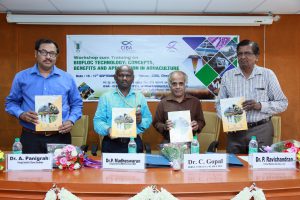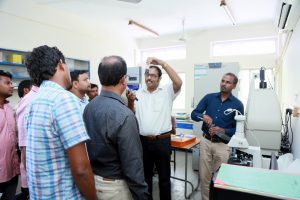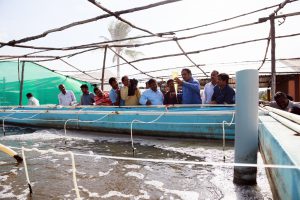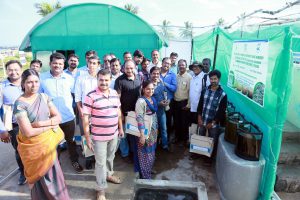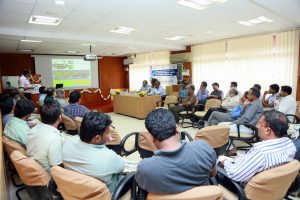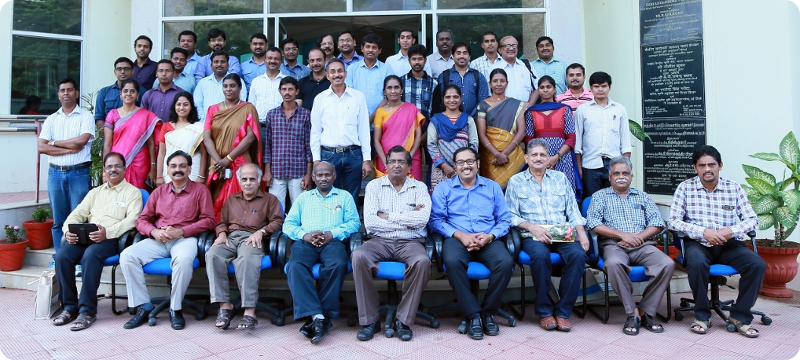The Central Institute of Brackishwater Aquaculture of the Indian Council of Agricultural Research (ICAR-CIBA) organised a National workshop-cum-training programme during September 15-17, 2016 to disseminate the knowledge on Biofloc-periphyton based brackishwater aquaculture technology to farmers, researchers and other stakeholders from various parts of India. Twenty four trainees from eight states of India participated in this training workshop. Biofloc being a rich source of quality protein with essential amino acids, minerals, vitamins and fatty acids, enhances the growth performance and its natural probiotic effects help in the better health status of cultured shrimp. Dr C. Gopal, Director Incharge of CIBA stated that Biofloc-based farming systems make use of aggregated microalgal and microbial flora as the nutritional source or heterotrophic organisms generated in culture ponds through manipulation of carbon-nitrogen ratio. Dr Akshaya Panigrahi, the Principal Investigator and Coordinator of the programme indicated that BFT as an innovative and useful farming technology which potentially exploits the capacity to harness the natural microbial food web, remediating water quality and also contributing to an increased defence status of the host. The BFT can be taken up with zero/minimal water exchange and takes care of the effluent discharge and salinization of other resources. The microbial floc could also reduce the feed cost to the farmers by 15-20 % as the protein is utilised twice. Though biofloc based farming is widely practised by shrimp farmers across the world, it has not gained momentum among Indian farmers.
The ICAR-CIBA has focused on developing and refining the technology for penaeid shrimp so as to make it more economical and profitable. With the knowledge base available at CIBA technical support can be extended to those interested in adopting this technology to increase brackish water aquaculture production. In an effort to create an awareness among the farmers about the prospects and challenges of biofloc based farming systems, on the 3rd day of the workshop, a brain-storming interactive session was convened with the many participants, stakeholders from the field, such as Dr. P. Ravichandran, Former Member Secretary, Coastal Aquaculture Authority Dr. R. Jayaraman, Director, Coastal Aquaculture Authority and Dr. V. Selvam, Executive Director, MSSRF, Mr. Santhana Krishnan, Mr. B. Suryakumar and Mr. Anil Ghanekar from the industry. The intricacy of BFT was deliberated thoroughly and various issues were flagged off for follow-up. These measures would ultimately aid in propagating the concept of realising high productivity through an eco-based sustainable approach.
